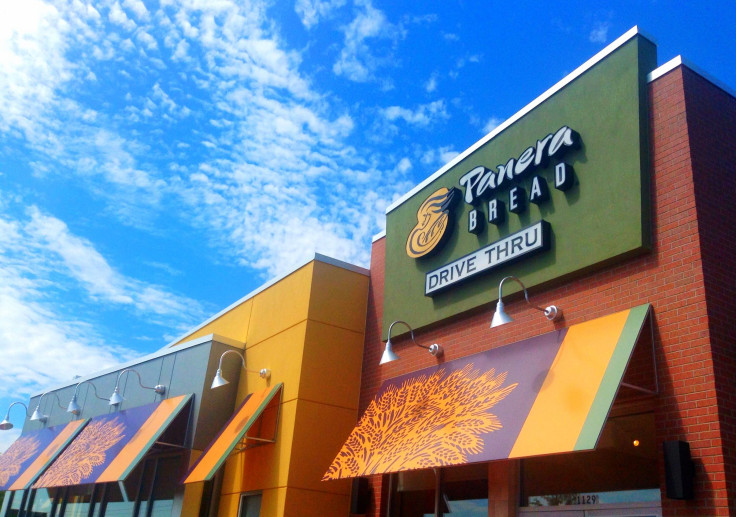Panera Bread Promotes Plant-Based Diet To Customers; How To Eat Protein Without The Meat

Panera Bread, best known for its artisan sandwiches, soups, salads, and most notably the baked goods and breads from its bakery, is taking a greater stake in its customers’ health. The restaurant franchise, nearly 2,000 chains strong, announced its menu items will include more plant-based proteins. More and more research demonstrates the benefits a meat-minimized diet could provide, and with the World Health Organization’s recent announcement of the carcinogenic dangers of processed meat, now may be a better time than ever to seek out nutrients from plants.
“We know that guests are increasingly seeking plant-based proteins for personal health reasons and/or to reduce their environmental impact,” said Sara Burnett, Panera’s director of wellness and food policy, in the press release. “To that end, we have been adding plant-based proteins like edamame and organic quinoa to our pantry of ingredients.”
Panera has carved out a reputation in the restaurant-chain industry as a dietary innovator. Its creativity has led to a wide variety of ingredient experiments, including stone ground breads, an increase of nuts and seeds, and healthy fats such as avocados.
“It’s the first national chain that I’m aware of that’s ever said that,” said Josh Balk, senior food policy director for the Humane Society of the United States, according to Fortune. “It’s hugely significant.”
In June 2015, Panera announced it was embarking on a mission to remove 150 artificial additive ingredients, along with expanding its menu to new customizable and transparent items, by 2016. Panera’s menu is adaptable for all types of diet, whether you're vegan, vegetarian, gluten-conscious, or looking to bulk up on protein.
“If you look at us as your ally in wellness, we’re not making a stake in eating protein is better than another or being gluten-conscious is good or bad,” Panera Bread head baker Tom Gumpel told Medical Daily back in June when we taste tested their new menu items. “We’re basically saying that you can use us through our current pantry’s huge subset of ingredients.”
Cutting meat and finding protein in plants is one of the ways Panera gets creative. Encouraging Americans to choose a diet with less meat and more plant-based foods will reduce chronic and preventable diseases that account for 75 percent of all health care costs, according to a recent letter written by 700 leading doctors, dietitians, and public health experts.
“A diet higher in plant-based foods, such as vegetables, fruits, whole grains, legumes, nuts, and seeds, and lower in calories and animal-based foods is more health-promoting and is associated with less environmental impact than is the current U.S. diet,” the letter reads.



























